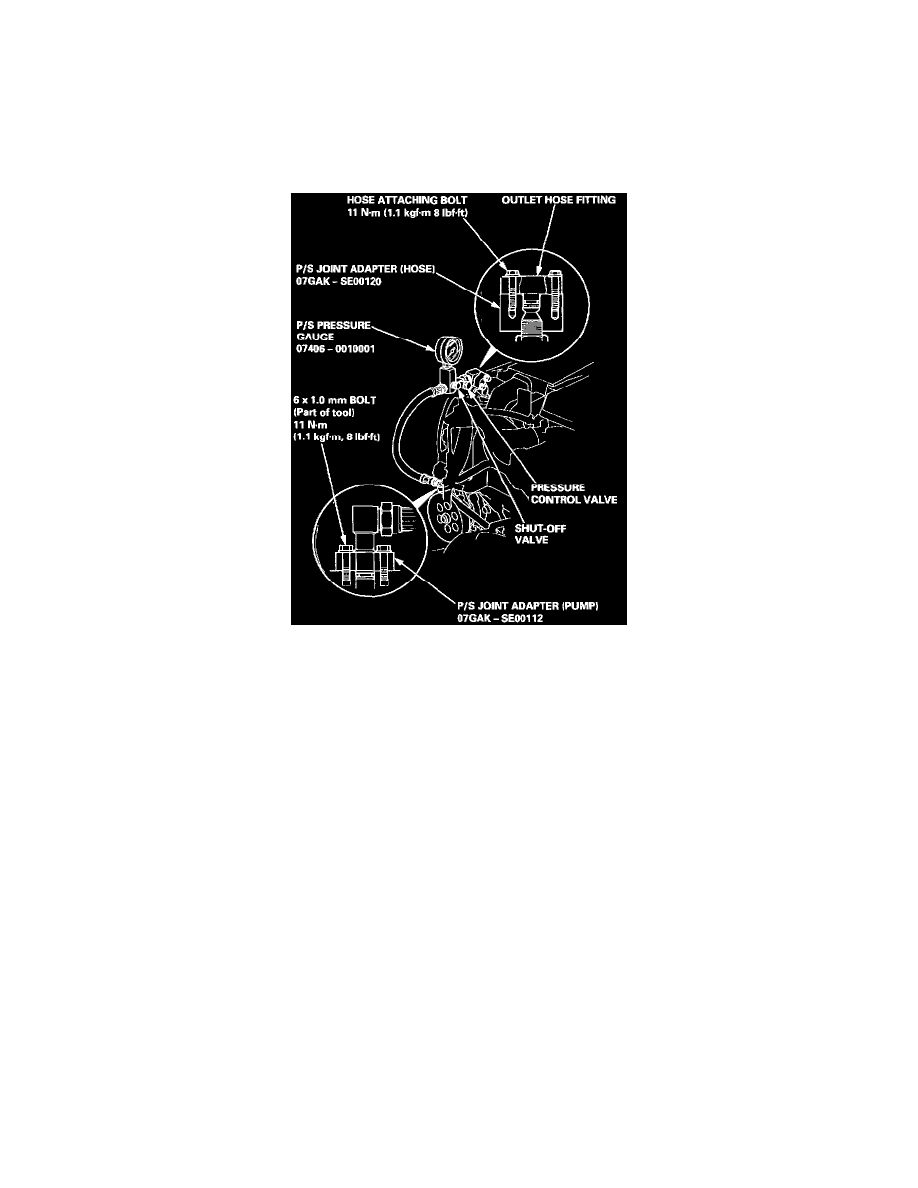TL V6-3206cc 3.2L SOHC MFI (1998)

Power Steering Pump: Testing and Inspection
Check the fluid pressure as follows to determine whether the trouble is in the pump or gearbox.
NOTE: First check the power steering fluid level and pump belt tension.
CAUTION: Carefully disconnect the high pressure hose so the power steering fluid does not leak on the frame and other parts.
1. Remove the Air Cleaner (ACL).
2. Disconnect the outlet hose from the pump outlet fitting, and install the P/S joint adapter (pump) on the pump outlet.
3. Connect the hose P/S adapter (hose) to the power steering pressure gauge, then connect the outlet hose to the adapter.
4. Connect the power steering pressure gauge to the P/S joint adapter (pump).
5. Open the shut-off valve full.
6. Open the pressure control valve fully.
7. Start the engine and let it idle.
8. Turn the steering wheel from lock-to-lock several times to warm the fluid to operating temperature.
9. Measure steady-state fluid pressure while idling. If the pump is in good condition, the gauge should read less than 1500 kPa (213 psi).
If it reads high, check the outlet hose or valve body unit.
10. Close the pressure control valve, then close the shut-off valve gradually until the pressure gauge needle is stable. Read the pressure.
11. Immediately open the pressure control valve fully.
CAUTION: Do not keep the pressure control valve closed more than 5 seconds or the pump could be damaged by over-heating.
